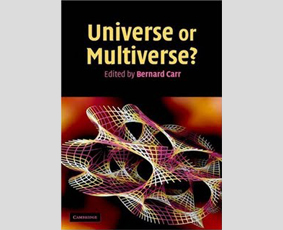First of all: I wouldn’t recommend buying this book at the regular price, which is rather hefty. Most of the papers are available for free on the Internet (and legally so); just check the TOC (PDF/76KB) from Cambridge UP and google away.
As a second reason, the Templeton Foundation is knee-deep in this collection: they sponsored several of the conferences and meetings the papers grew out of, and, to add insult to injury, saw to it that some theological twaddle found its way into these conferences and, subsequently, into this volume. And there’s a third caveat: several of the papers, especially from the first part, are practically incomprehensible for the lay person, including Weinberg’s and Hawking’s.
Anyways, there are several excellent papers to be found in this volume. My favorites are Lee Smolin’s “Scientific Alternatives to the Anthropic Principle,” Brandon Carter’s “Micro-Anthropic Principle for Quantum Theory,” and Nick Bostrom’s “Observation Selection Theory and Cosmological Fine-Tuning.” There’s more good stuff, of course, but these papers do stand out. Paul Davies’s “Universe Galore: Where Will It All End?” is also pretty good (which, in his case, is not the norm).
All in all, it’s recommended reading, but the regular price for this volume is, all things considered, way too steep.
If you have something valuable to add or some interesting point to discuss, I’ll be looking forward to meeting you at Mastodon!

